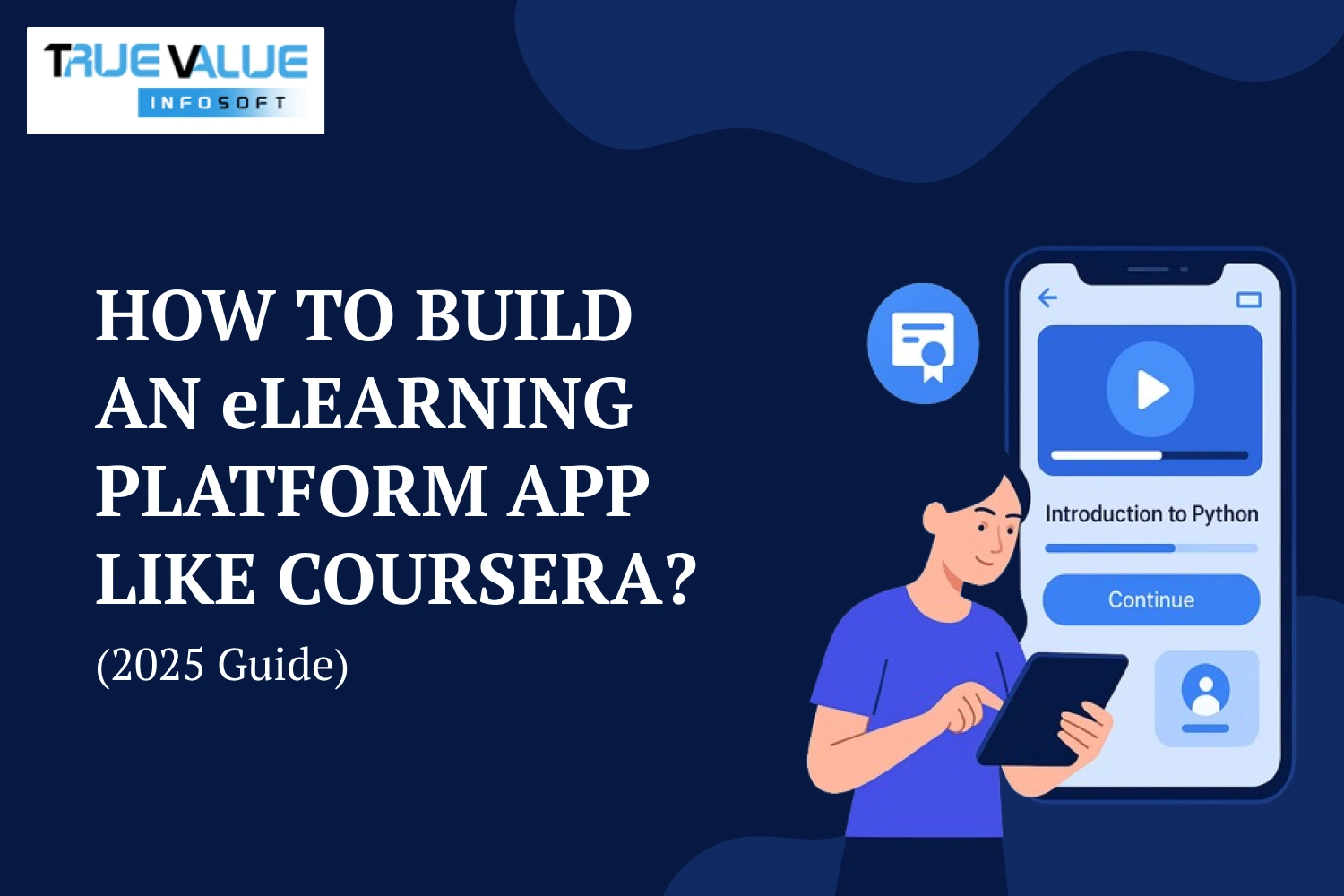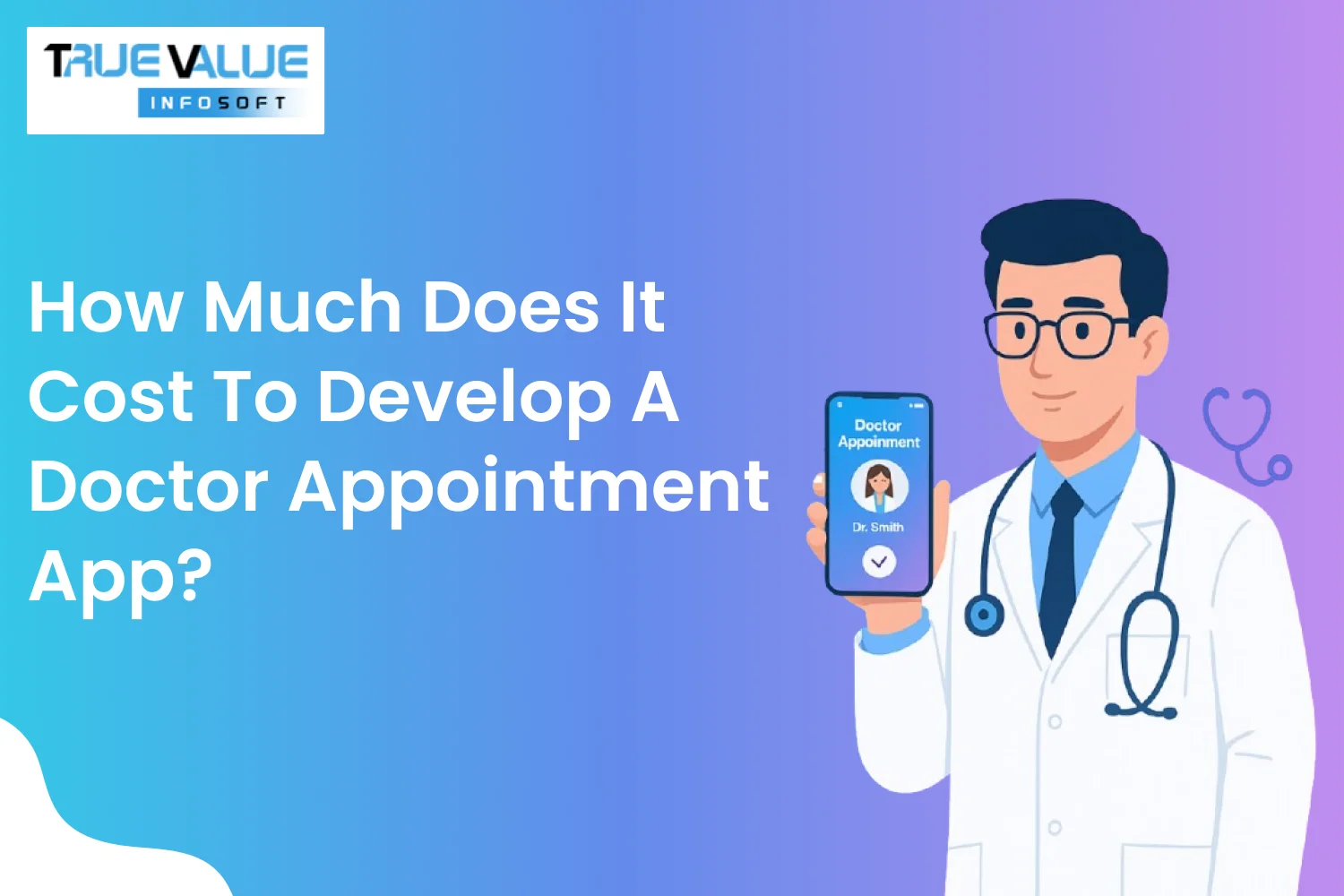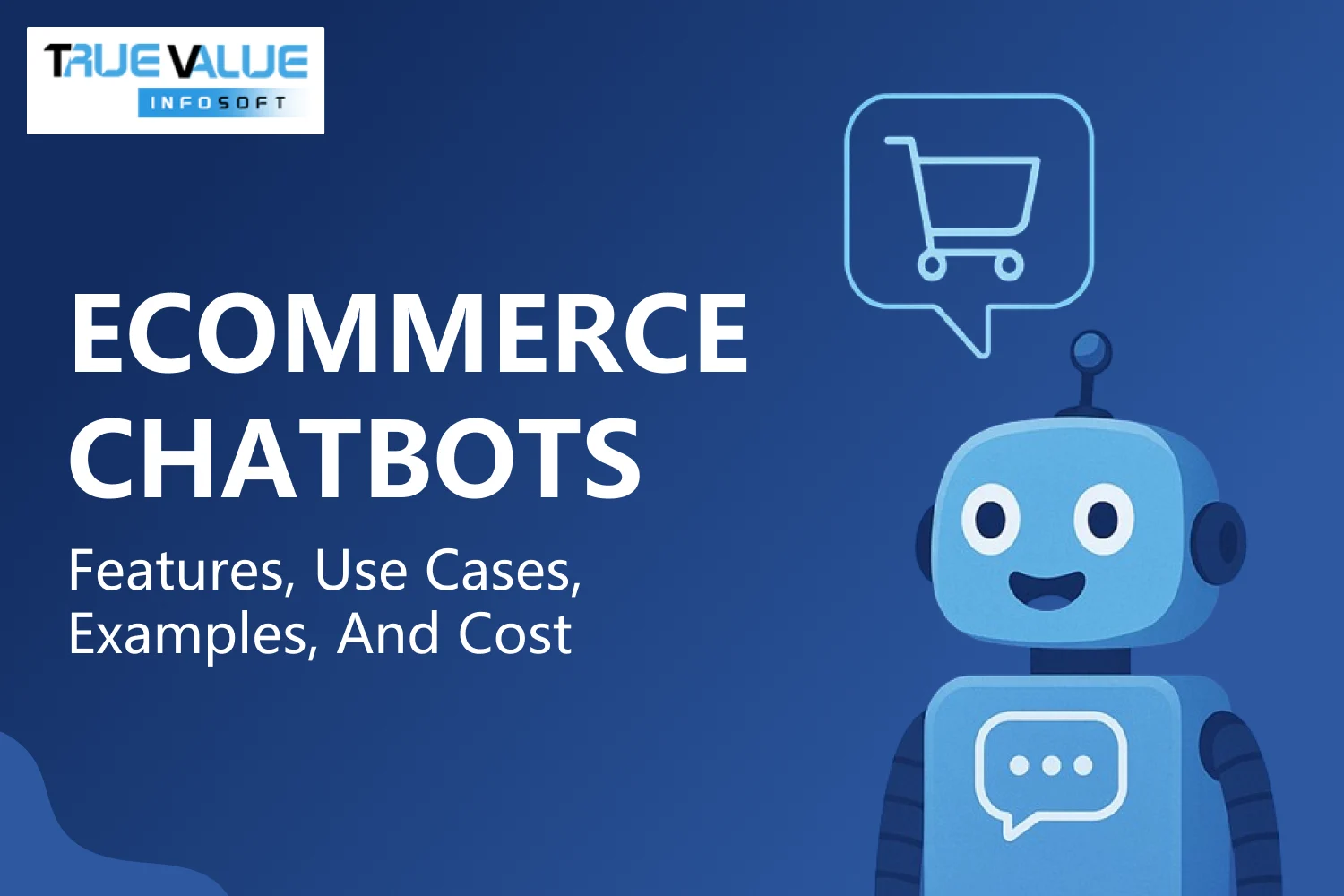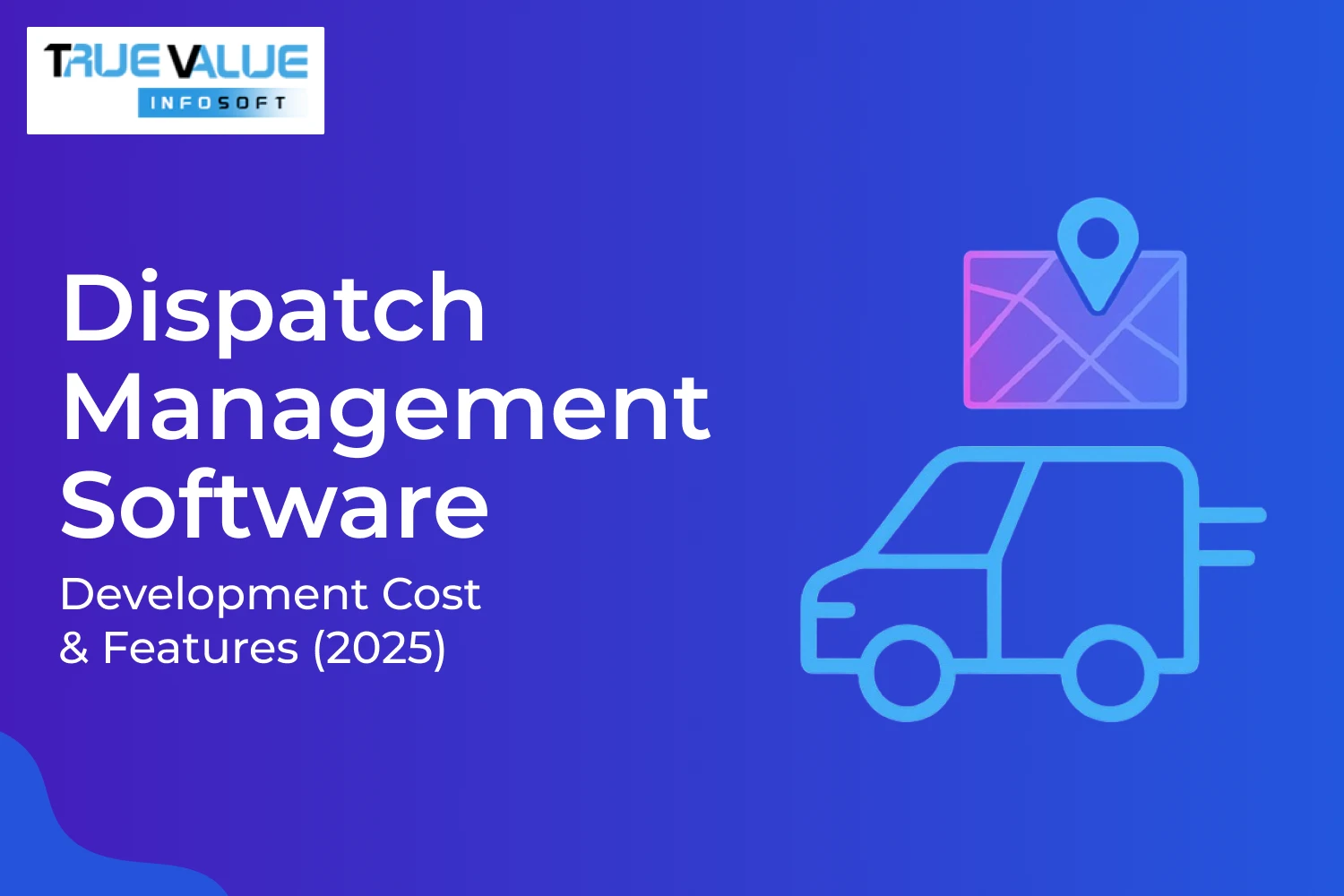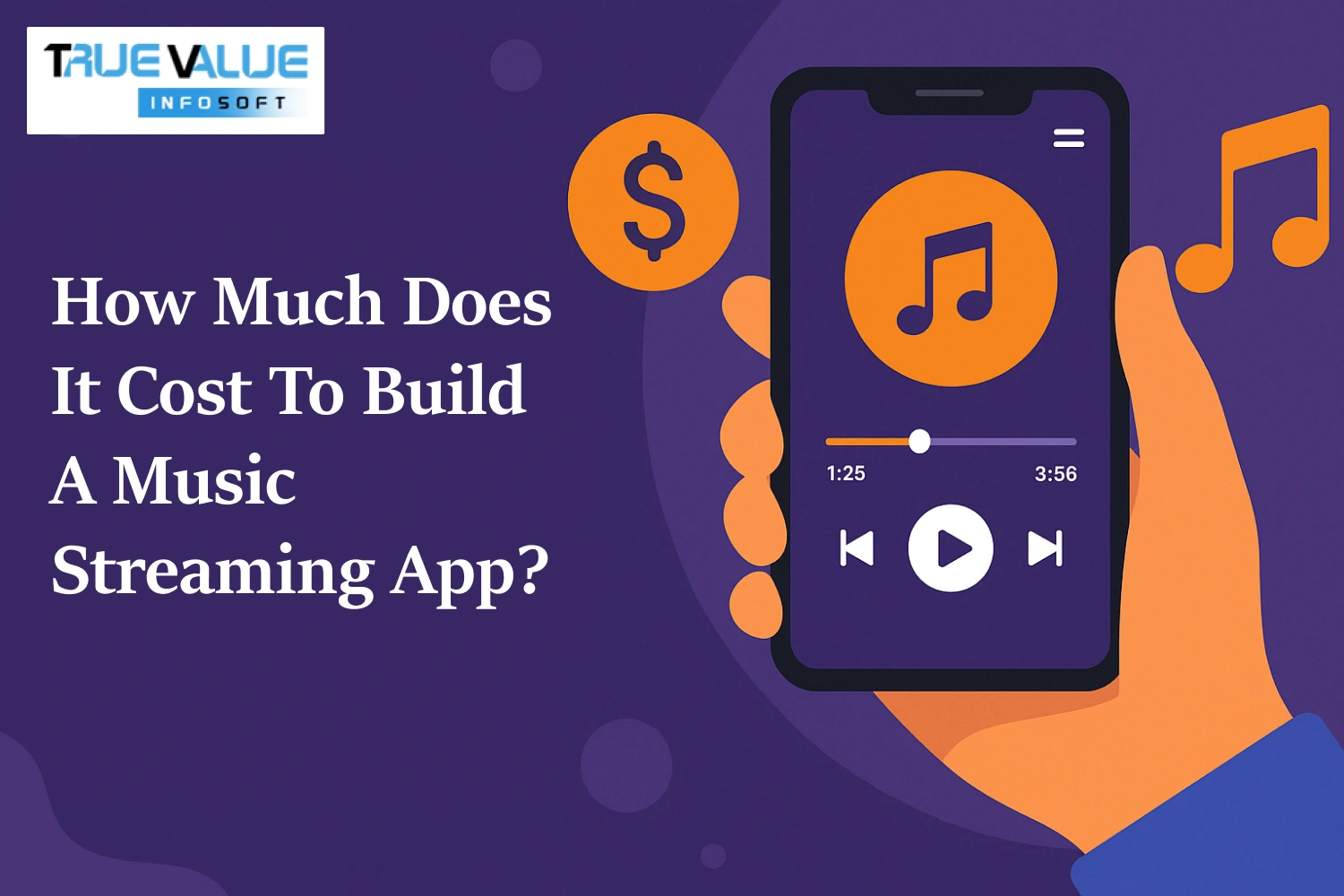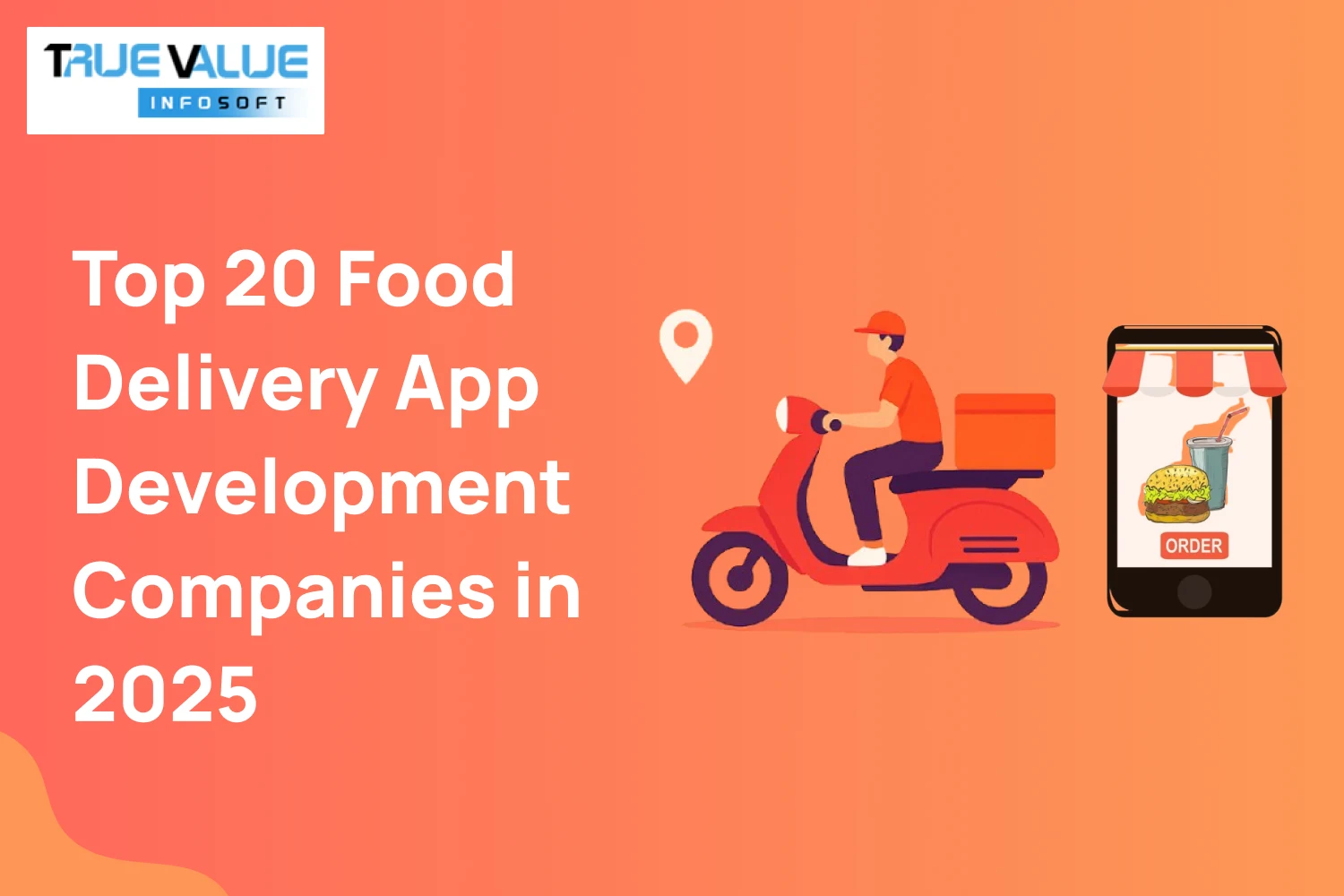Introduction
Have you ever wondered how global platforms like Coursera manage to connect millions of learners with top-tier educators at the click of a button? In today’s digital age, online learning is not just a trend—it’s a revolution. From working professionals upgrading their skills to students preparing for careers, the demand for quality eLearning platforms is soaring. If you're considering building a Coursera-like app, you’re on the right path toward innovation and impact.
As the best app development company in India, True Value Infosoft has empowered dozens of educational startups and enterprises to create robust, scalable, and intuitive eLearning platforms tailored for 2025’s tech-savvy users. This detailed guide walks you through everything you need to build a successful eLearning platform: from features and architecture to development cost and timelines.
What Is an eLearning Platform Like Coursera?
An eLearning platform like Coursera is a digital solution that offers online courses, certifications, and specializations from global institutions and educators. Users can access pre-recorded lectures, live sessions, assessments, and certification options—all via a single application.
Coursera, founded in 2012, has set the benchmark by offering academic courses from prestigious universities like Stanford and Yale, as well as corporate training and skill development programs.
Core Functions:
- Content Delivery (Videos, PDFs, Quizzes)
- User Registration and Profiles
- Course Enrollment and Progress Tracking
- Certificates and Credentials
- Peer Interaction and Discussions
Why Build an eLearning App in 2025?
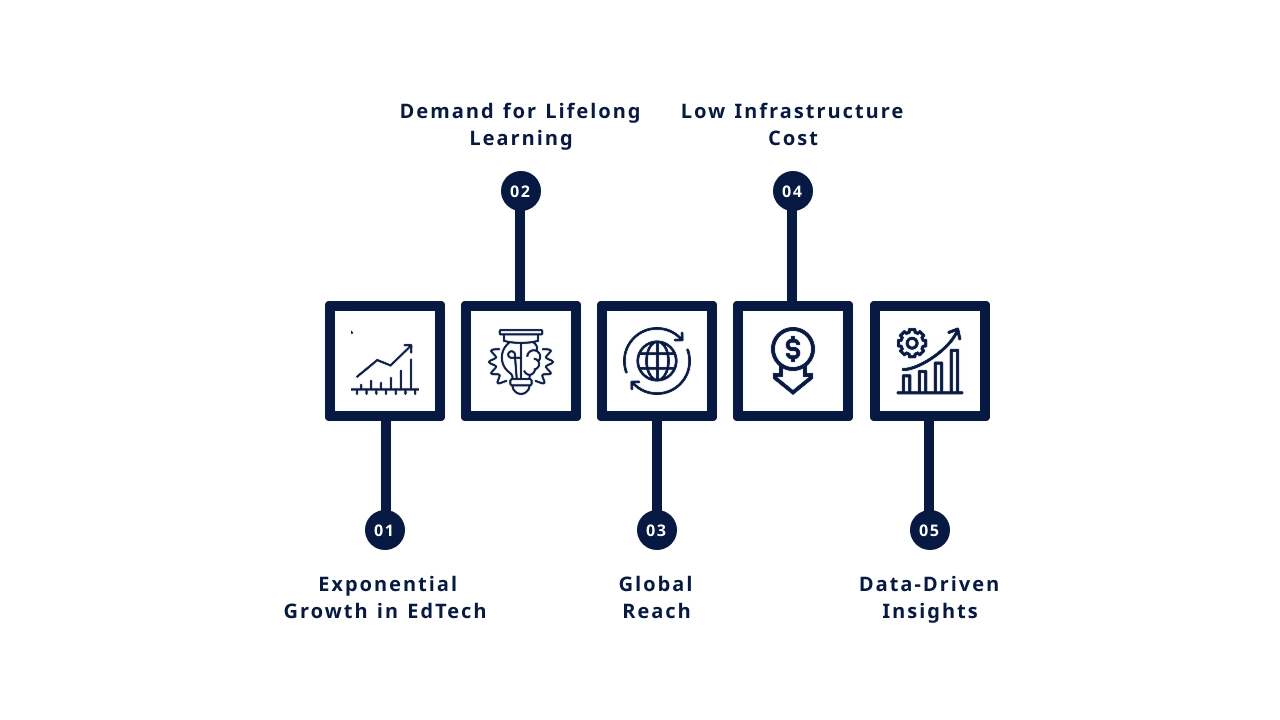
1. Exponential Growth in EdTech
With the global eLearning market projected to reach over $450 billion by 2025, it’s one of the fastest-growing digital sectors.
2. Demand for Lifelong Learning
Working professionals are constantly upgrading skills, and companies are funding employee training via online platforms.
3. Global Reach
You can reach students worldwide with multilingual support and localized content.
4. Low Infrastructure Cost
No need for physical classrooms—your mobile app becomes the campus.
5. Data-Driven Insights
Track user behavior to improve course offerings and engagement strategies.
Key Features of a Coursera-Like App
For Learners:
- User Sign-Up/Login (Email, Social Media)
- Course Catalog and Filters
- Course Previews and Ratings
- Video Lectures and PDFs
- Progress Tracker and Resume Learning
- Live Classes and Webinars
- Quizzes, Assignments, and Exams
- Certificates and Achievements
- Chat Support and Forums
- Push Notifications
For Instructors:
- Profile Management
- Course Creation Tools (Drag-and-Drop Interface)
- Video and Resource Upload
- Analytics Dashboard
- Revenue Insights
- Assignment Grading Tools
For Admin:
- User Management (Students & Instructors)
- Course Moderation
- Revenue Tracking
- Reports & Analytics
- CMS for Blogs, Announcements
Types of eLearning Platforms
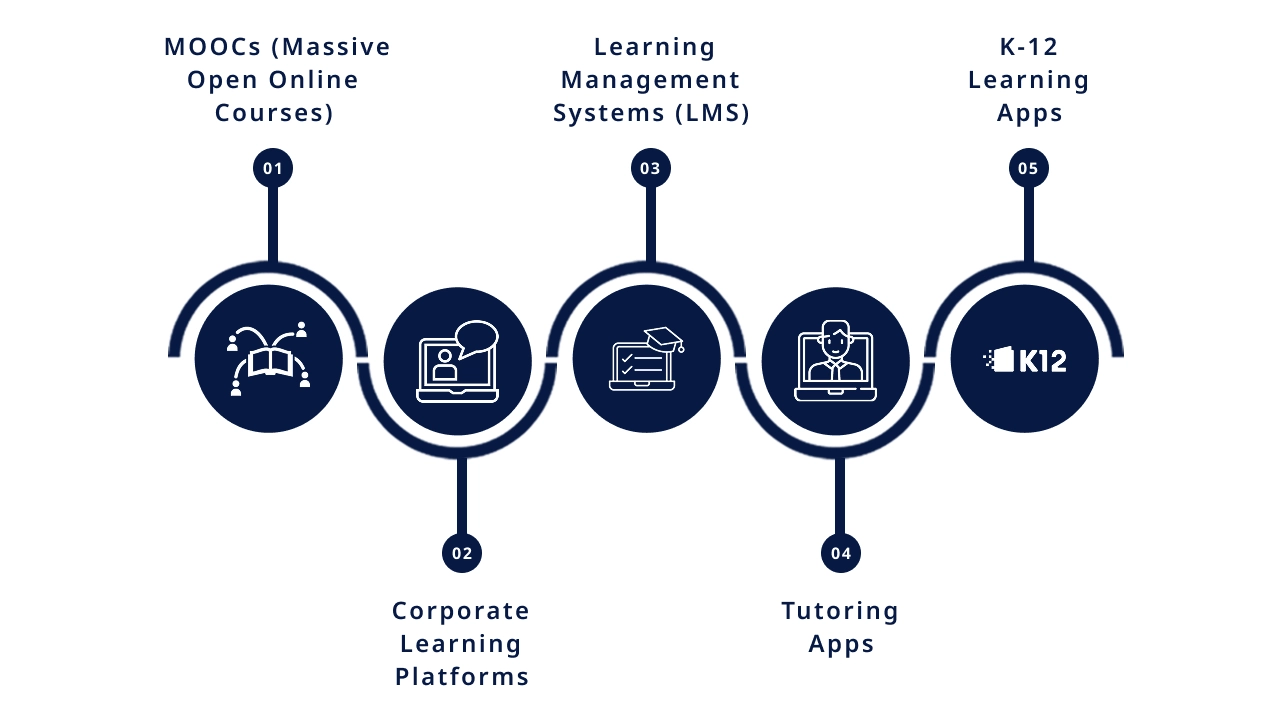
1. MOOCs (Massive Open Online Courses)
Like Coursera, edX – Focused on large-scale participation.
2. Corporate Learning Platforms
Custom learning for companies, like Udemy Business or LinkedIn Learning.
3. Learning Management Systems (LMS)
Built for educational institutions, offering grading systems, classrooms, and attendance.
4. Tutoring Apps
One-on-one or group sessions—Think Chegg Tutors or Wyzant.
5. K-12 Learning Apps
For school students—like Byju’s and Khan Academy.
User Roles & Dashboards
- Students: Course discovery, enrollment, progress tracking.
- Instructors: Content upload, student engagement, assessments.
- Admins: Platform management, content approval, analytics.
Each role should have a dedicated dashboard tailored to their tasks.
Monetization Strategies
- Subscription Model (Monthly/Yearly)
- Pay-Per-Course
- Freemium Access
- Corporate Licensing
- Affiliate Marketing
- Ad Integration
- In-App Purchases (Premium content, tools)
Step-by-Step Development Process
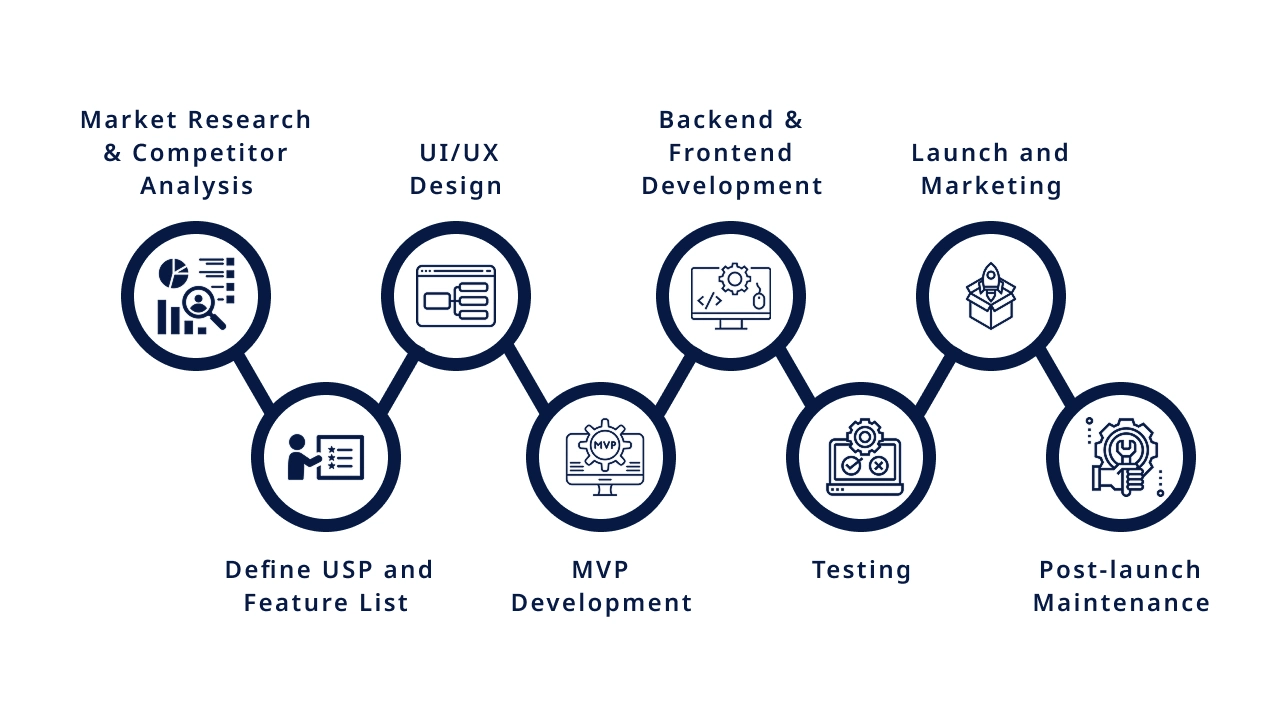
Step 1: Market Research & Competitor Analysis
Understand trends, target audience, and top-performing features.
Step 2: Define USP and Feature List
Stand out with AI recommendations, gamification, or niche courses.
Step 3: UI/UX Design
Design intuitive navigation for mobile and web versions.
Step 4: MVP Development
Build a Minimum Viable Product to test core features.
Step 5: Backend & Frontend Development
Choose robust frameworks like React Native, Node.js, Python, etc.
Step 6: Testing
Conduct QA testing—functional, UI, stress, and user testing.
Step 7: Launch and Marketing
Deploy on app stores, and promote via SEO, SEM, influencers.
Step 8: Post-launch Maintenance
Bug fixes, feature updates, and cloud scaling.
Technology Stack for Building eLearning Apps
| Component | Technology Options |
|---|---|
| Frontend | React Native, Flutter, Swift, Kotlin |
| Backend | Node.js, Django, Ruby on Rails |
| Database | MongoDB, PostgreSQL, MySQL |
| Cloud Hosting | AWS, Google Cloud, Azure |
| Video Streaming | Vimeo, JWPlayer, AWS IVS |
| Payment Gateway | Stripe, Razorpay, PayPa |
| Push Notifications | Firebase Cloud Messaging (FCM) |
| Analytics | Mixpanel, Google Analytics |
Integrating AI and ML for Personalized Learning
- AI Chatbots: Handle student FAQs and guide them.
- Personalized Recommendations: AI suggests courses based on interest and performance.
- Smart Analytics: Predict student dropouts or performance dips.
- Automated Grading: Use ML to auto-grade quizzes or code.
Cost to Develop an eLearning App in 2025
| Factor | Cost Range (USD) |
|---|---|
| Basic MVP | $20,000 – $40,000 |
| Full-Featured App | $50,000 – $100,000+ |
| Web + Mobile Integration | $10,000 – $20,000+ |
| AI Features Integration | +$10,000 – $30,000 |
| Ongoing Maintenance (Yearly) | $5,000 – $20,000 |
Cost depends on app complexity, number of platforms (iOS/Android/Web), third-party integrations, and region of development.
Challenges and Solutions
| Challenge | Solution |
|---|---|
| Video Streaming Load | Use CDNs and adaptive bitrate streaming |
| Content Security | DRM, encrypted video, watermarking |
| Student Engagement | Gamification, certificates, peer discussions |
| Scalability | Cloud-native architecture (AWS, Kubernetes) |
| User Retention | Push notifications, rewards, progress tracking |
Why Choose True Value Infosoft for eLearning App Development
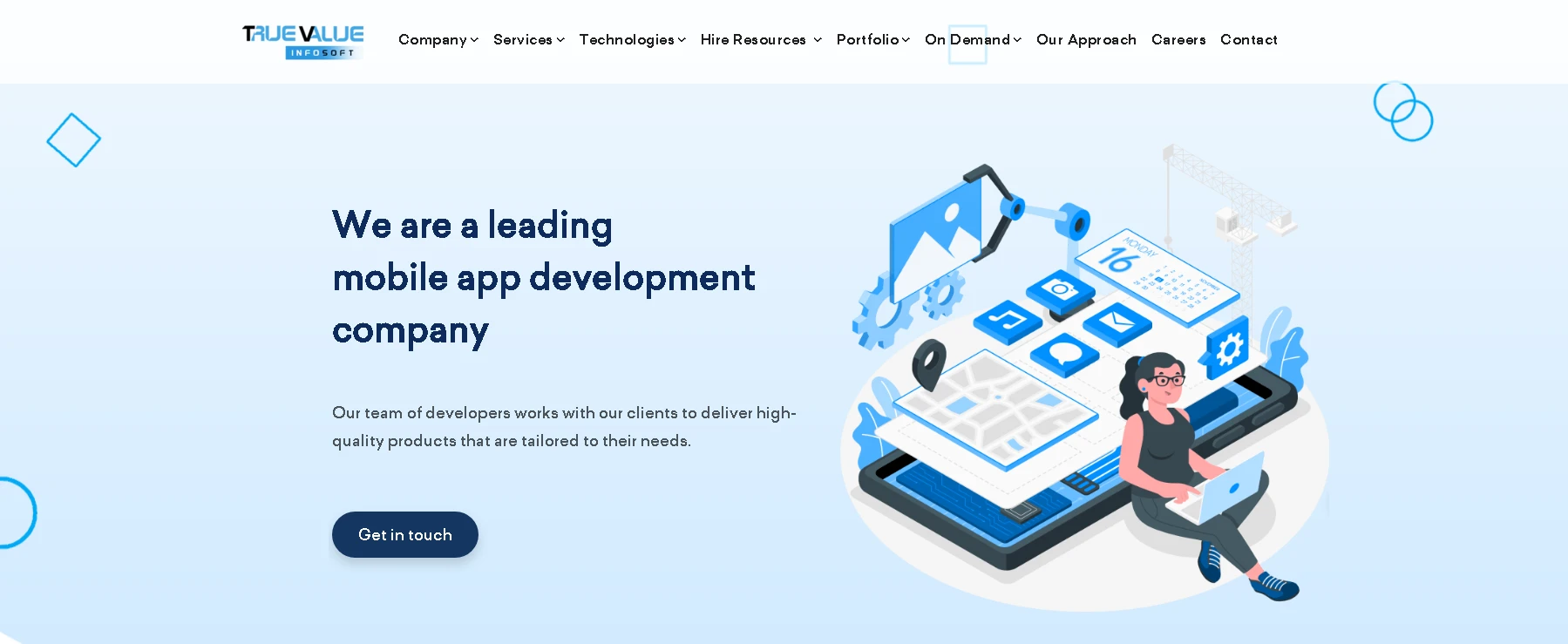
True Value Infosoft is India’s best app development company, known for transforming ideas into world-class digital products. When you choose us, you gain:
- Expertise in EdTech with real-world case studies.
- Custom eLearning solutions for schools, colleges, and enterprises.
- Scalable cloud architecture for seamless streaming.
- AI integration for smart learning.
- Dedicated UI/UX team for intuitive learning interfaces.
- Agile development process for on-time delivery.
Whether you’re launching your first educational startup or digitizing an entire university, True Value Infosoft is your trusted partner in EdTech success.
Conclusion
Building an eLearning app like Coursera in 2025 is a profitable and future-ready investment. With the rising need for remote learning, digital certifications, and upskilling, your platform can become a global knowledge hub. From choosing the right tech stack to adding game-changing AI features, the success of your app lies in a clear vision and the right development partner.
Let True Value Infosoft, the best app development company in India, guide you in launching your next big EdTech venture. Together, we’ll build a platform that transforms education for the better.
FAQs
On average, it takes 4 to 6 months to build a full-featured Coursera-like app, depending on complexity and features.
Yes, with monetization features like subscriptions, pay-per-course, or ads, you can start generating revenue immediately.
Popular choices include React Native, Node.js, MongoDB, AWS, and integration tools like Stripe and Vimeo for payments and video streaming.
Absolutely! With tools like WebRTC or Zoom SDK, you can enable live classes, webinars, and real-time Q&A.
True Value Infosoft has a strong portfolio in eLearning development, offers AI-integrated solutions, and ensures timely delivery with ongoing support.
